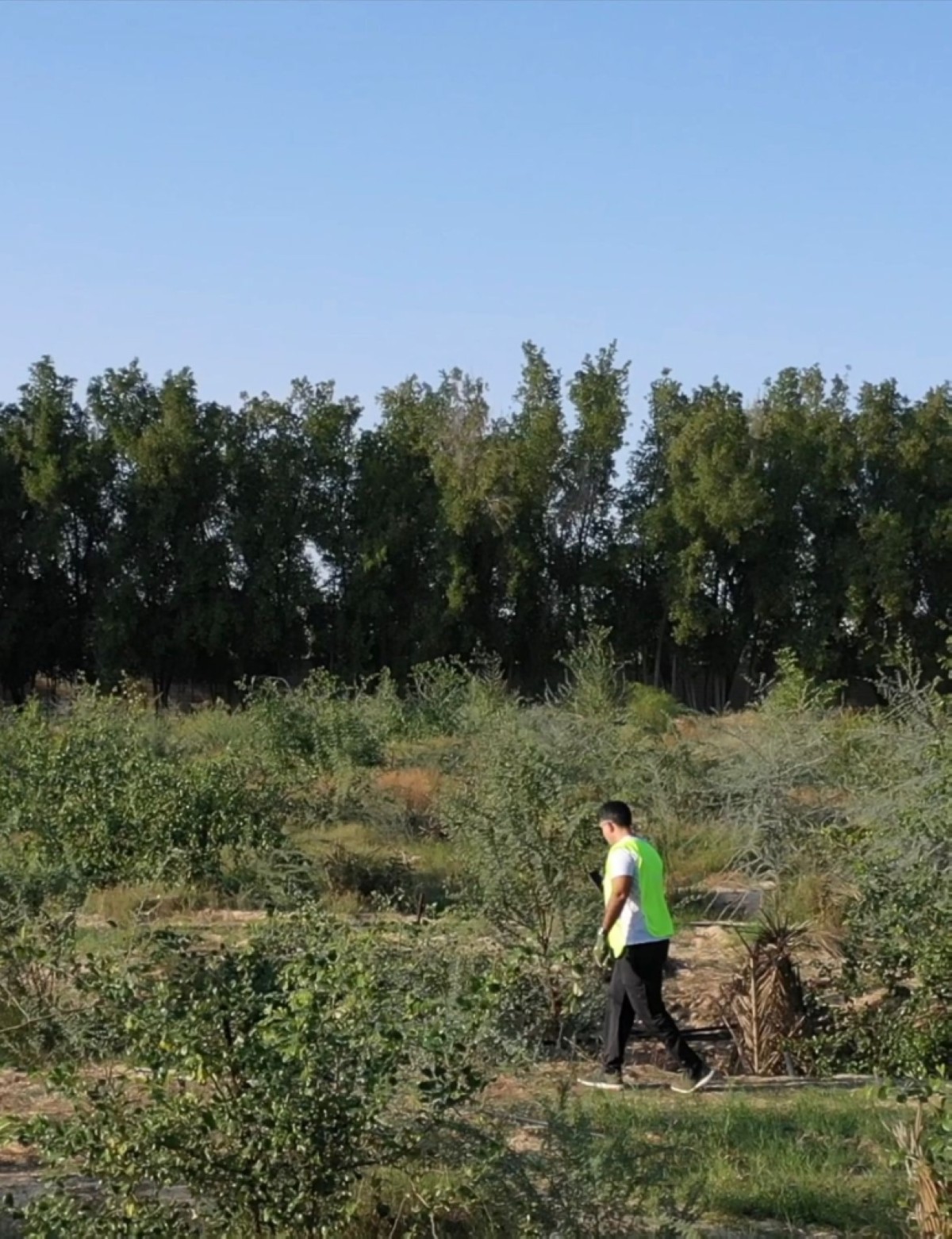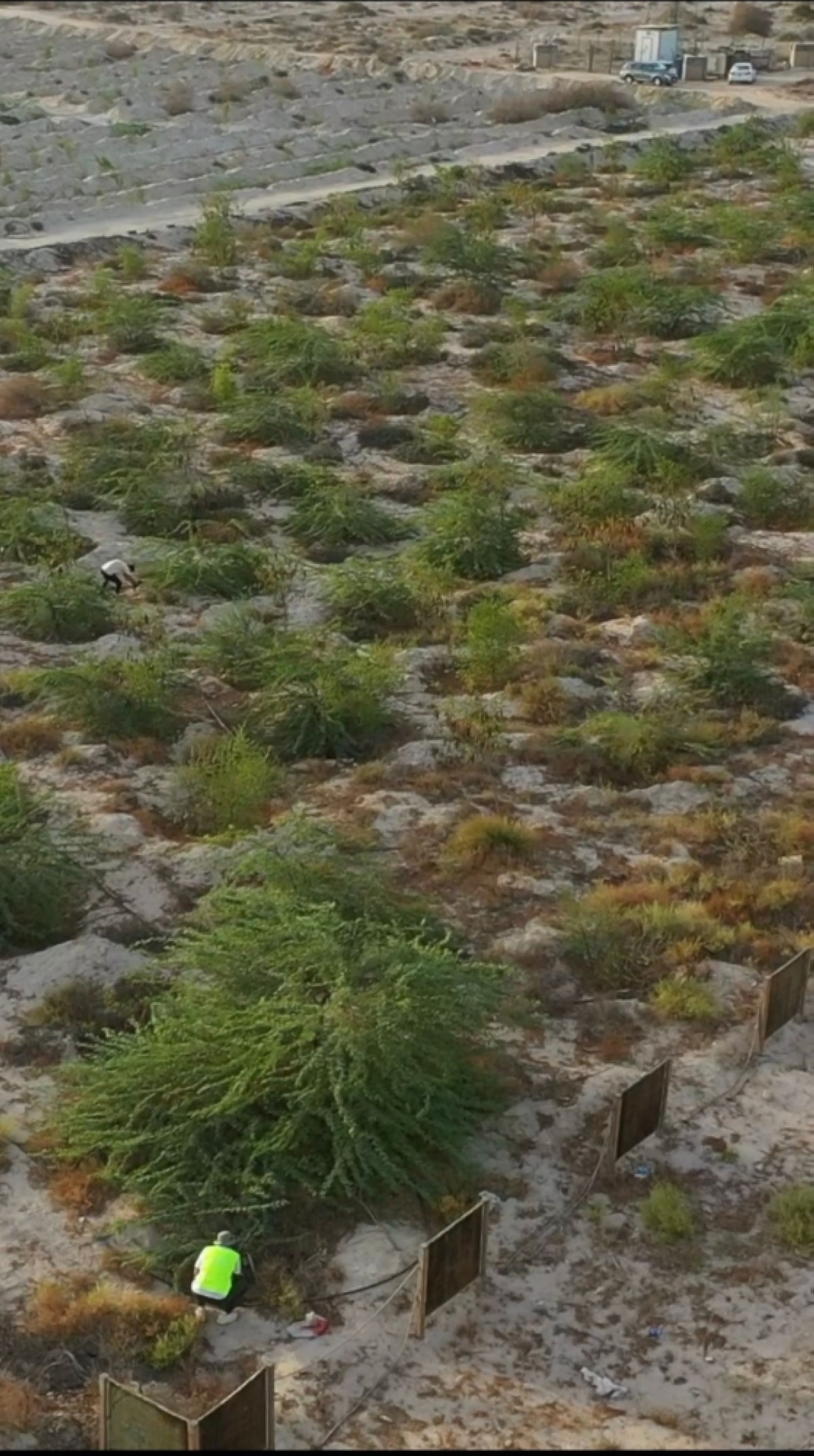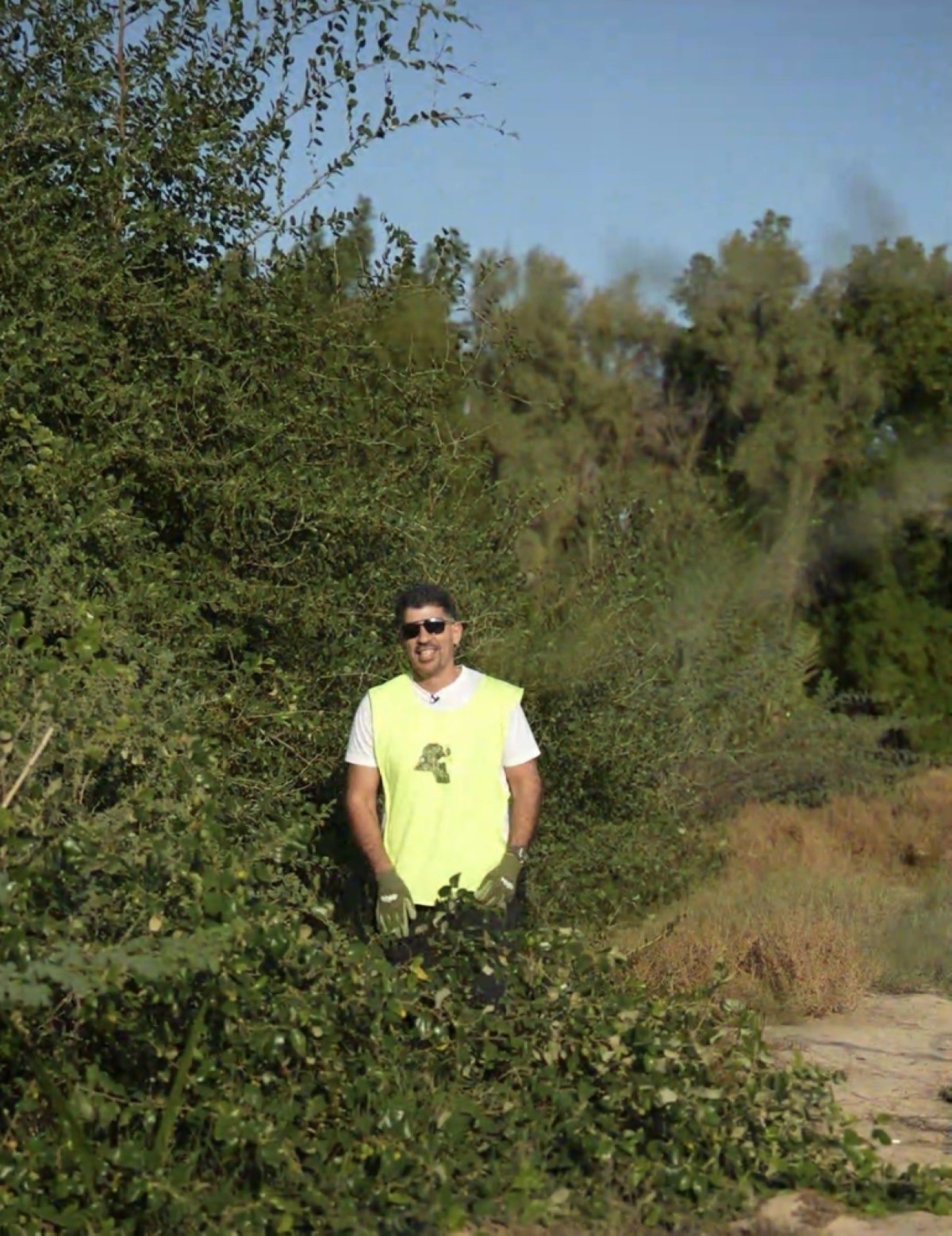KUWAIT: A dream of turning Kuwait’s deserts into fruitful forests and combating climate change, desertification and achieving food security has started to take shape under the initiative of Kuwaiti dentist Dr Issa Al-Issa. He has planted the first forest in Kuwait, covering an area of 25,000 square meters. Overcoming Kuwait’s harsh climate, compacted hard soil, water scarcity and overgrazing, Issa’s forest is now showing the growth of a thriving ecosystem.
This includes 5,000 trees producing kinar fruit and attracting wildlife such as desert foxes, nightingales, butterflies and bees. This success is attributed to his adoption of a special agricultural technique that yields great outcomes with minimal resources. "I discovered a natural farming system that can provide all the needed minerals for tree growth, almost without the intrusion of fertilizers or human intervention,” Dr Issa told Kuwait Times.
Dr Issa’s dream does not stop there. His vision for 2027 includes planting more fruit-bearing trees such as figs, pomegranates and oranges, with the goal of greening the entire country. He has expressed his readiness to share his knowledge and support any institution willing to collaborate on expanding the project, offering his services as a consultant free of charge.




Highlighting Kuwait’s heavy reliance on food imports, Dr Issa emphasized the need to utilize the country’s land and soil to achieve self-sufficiency, which is the main goal of his project. In addition to food security, he stated that increasing green areas will play a vital role in mitigating the impacts of climate change in Kuwait.
Scientifically proven benefits of trees, he noted, include effectively lowering ambient temperatures, purifying the air, reducing dust and acting as windbreaks. Additionally, trees can enhance overall electricity efficiency in the region. Since the commencement of the project in February 2022, Dr Issa has been documenting the step-by-step process of forest planting on social media.
To this day, he continues to share his experience, raise awareness about the benefits of afforestation, and teach proper agricultural techniques for deserts. Dr Issa believes Kuwait needs between three to five million trees to achieve significant environmental sustainability. He hopes the government will establish a mechanism to effectively utilize more volunteers like himself, listen to their initiative ideas and support them by allocating resources to the areas that need their efforts the most.

